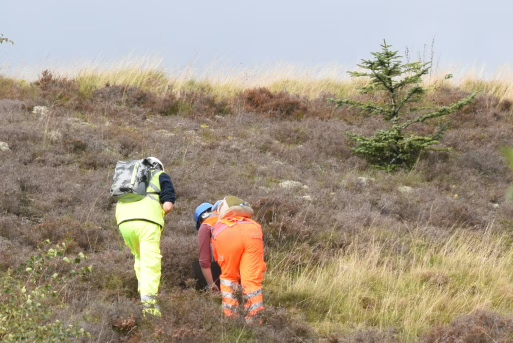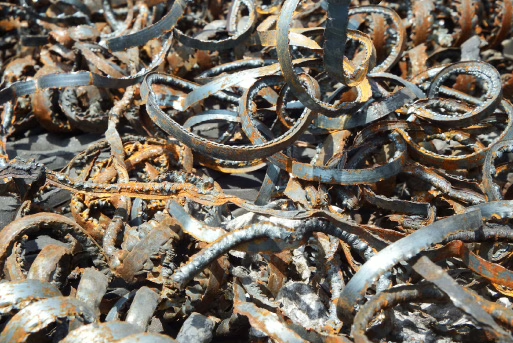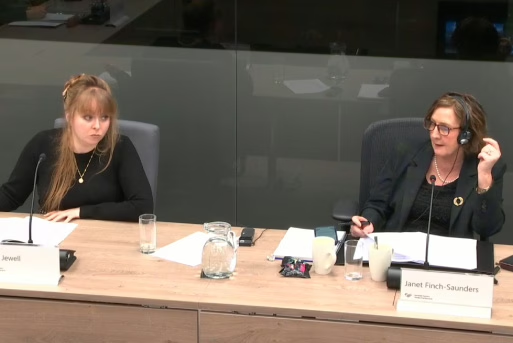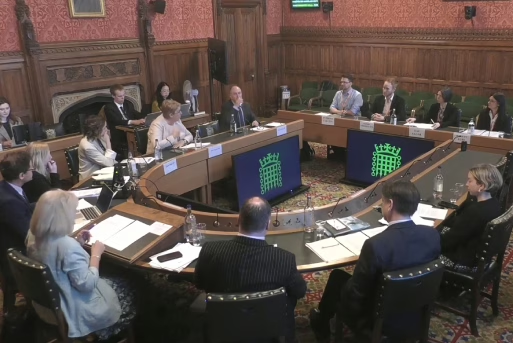The recent Digest of UK Energy Statistics shows the coal situation for 2022. All unreferenced statistics come from this report and appendices.
Coal was bought by power stations last year in order to fulfil unexpected, short term contracts with the government worth £420 million to extend power station's lives while air quality environmental regulations were not enforced.
In 2022, coal mined in the UK mainly came from opencast coal mines. Production was down on previous years. Now, in September 2023, there is only one operating opencast coal mine, the illegal Ffos-y-fran mine. There is one significant sized deep coal mine; Aberpergwm colliery in Neath Port Talbot, which has been granted permission to expand. From this date there is only one coal power station available to generate electricity, down from 4 last year.
While overall energy demand in 2022 was stable compared to 2021, demand met by coal in the energy mix fell by 15% compared to 2021, to 1.60% of total electricity supply. Wind, solar and hydro energy production rose to a record high level due to increased capacity and more favourable weather conditions, but unfortunately consumption of both gas and nuclear energy were also up.
Coal use in power stations has dropped dramatically since 2012, when 43% of electricity in the UK grid was produced from coal combustion. However, 4 coal power plants remained operational throughout 2022. Drax and West Burton power station's coal units were due to be closed before the end of 2022, but the UK Government paid £420 million to extend the operational lifespan of the coal units over winter 2022 into 2023. Coal stocks were 10% higher than in 2021 to facilitate this. Drax didn't operate in 2022 and is now decommissioning its coal units. It remains a high carbon power station, though, as it burns imported wood as biomass.
4 coal power stations operated in 2022. Now only Ratcliffe-on-Soar remains available to the grid.
Ratcliffe on Soar power station is due to close in September 2024.
In early 2020, Drax power station said there would be "formal closure of the coal units in September 2022". Decommissioning actually started in 2023, after the UK Government paid the power station to be on standby with coal during last winter. Drax did n't operate in 2022 and is now decommissioning its coal units. It remains a high carbon power station as, though, it burns imported wood.
n't operate in 2022 and is now decommissioning its coal units. It remains a high carbon power station as, though, it burns imported wood.
Kilroot coal and oil power station in Northern Ireland is to be converted to gas. It was expected to stop consuming coal in September 2023, but this may have been brought forward marginally (unconfirmed).
West Burton coal power station closed at the end of March 2023 delayed by the UK Government from September 2022.
Coal phase-out in the UK is expected by October 2024. Given that coal consumption in power stations is very low, with periods of no consumption, in the summer, the last generation could be April 2024.
In 2022, coal production fell by 39% to a record low of 0.6 million tonnes, with opencast coal mining producing more than underground mines.[1]
The Scottish Government announced a de-facto ban on coal mining in October 2022, in protest against the expected approval of the Whitehaven coking coal mine. We anticipate this stopped a deep coal mine application by Australian company New Age Explorations at Lochinvar in the Scottish borders. The company hoped to produce coking coal via underground mining until 2044.
Campaigns against proposed underground mines
Aberpergwm Colliery (Energybuild Ltd) in Neath Port Talbot had planning permission for a 42 million tonne extension to its underground (anthracite) coal mine approved in 2018. The Coal Authority issued the coal company a license to extract this coal in January 2022. Coal Action Network are taking legal action against the Welsh Government for failing to stop the mine extension being licenced.
Woodhouse Colliery proposed by West Cumbria Mining Ltd had its proposal for a new 1.78 million tonne per year underground coking coal mine off Whitehaven approved by the Secretary of State in December 2022. The planning approval is subject to 2 legal challenges which are expected to be heard by the High Court in early 2024.
There are now no legally operating opencast coal mines in the UK.
Glan Lash opencast coal mine, Carmarthenshire (South Wales), had an extension application rejected in September 2023.
In September 2022, Ffos-y-fran opencast coal mine in Merthyr Tydfil, was due to close after 15 years of operation. However, the mine has continued to operate with little action from the local council or Welsh Government. It is now expected to close at the end of Nove mber 2023, with no meaningful restoration of the land expected, as the company did not set aside the money to fulfil its contractual obligations in this regard. The guarantee bond of £15 million to be used in case this happens is far short of the estimated £120 million needed for restoration as per the original plan. The coal mining was originally approved by Welsh Government in 2005 as a way to restore a brownfield site at no cost to the public purse, an outcome that now appears remote.
mber 2023, with no meaningful restoration of the land expected, as the company did not set aside the money to fulfil its contractual obligations in this regard. The guarantee bond of £15 million to be used in case this happens is far short of the estimated £120 million needed for restoration as per the original plan. The coal mining was originally approved by Welsh Government in 2005 as a way to restore a brownfield site at no cost to the public purse, an outcome that now appears remote.
Hartington opencast coal mine, Derbyshire closed at the end of Spring 2023.[2]
Coal imports rose 38% in comparison with 2021 to 6.4 million tonnes in 2022 as power stations rebuilt stocks after the UK Government payments over winter. The import quantity had been decreasing prior to this government intervention.
In 2022, the USA was the largest exporter of coal to the UK, supplying 39%. This was followed by the Russia with 16%. Russia’s proportion of total coal imports had fallen from being the largest supplier at 43% in 2021.
Coal from the USA was fairly evenly split between coking coal for steelworks and thermal coal for power stations.
Coal from Russia was largely for power stations.
Australia provided 12% of imported coal. 57% of which was for power stations, the rest for steelworks. 10% of coal came from South Africa, which was entirely for power stations. Colombia supplied 7% of imported coal all to power stations.
The European Union supplied 9% of all coal to the UK. This coal is unlikely to have been mined in the EU, it has most likely lost its identity as coal enters and leaves the main coal ports in Europe. Other countries made up the remainder of the imported coal.
There are 4 major UK steel producers, 2 of which are using coking coal and produce much higher emissions than the two which recycle scrap steel.
Tata Steel
Port Talbot steel works, in Neath Port Talbot, Wales, is the second biggest UK single site emitter of carbon dioxide.[3] The plant currently uses coking coal to make steel in blast furnaces. In 2022, Tata Steel said the plant had to decarbonise or close. In September 2023, Tata Steel accepted £500 million from the UK Government to transition to electric arc furnace, but job losses are expected.
British Steel
Currently, British Steel’s Scunthorpe plant can use a maximum of 25% to 30% recycled content using Basic Oxygen steelmaking. It currently uses coking coal but is also looking to secure governmental subsidies to build a new electric arc furnace to replace a blast furnace in efforts to decarbonise.
Liberty
Liberty Steel, which has sites in Newport and in Tredegar, has said it aims to become a carbon-neutral steel producer by 2030. The site currently uses Electric Arc Furnaces and recycles scrap metal so does not use coking coal.
Celsa
Celsa’s Cardiff steelworks uses 100% recycled scrap steel in its products and so does not need coking coal.
For more details see our report Coal in Steel.
[1] compiled from Coal Authority, "Production and Manpower Statistics" for 2022
[2] Gov.uk "Coal mining production and manpower returns received by the Coal Authority April to June 2023." (July 2023)
[3] Ember, Coal Free Kingdom (13th November 2019) and Drax Group, Enabling a zero carbon, lower cost energy future page 39 (2019)
Queries and media contact: info @ coalaction . org .uk (without spaces)
References
[1] compiled from Coal Authority, "Production and Manpower Statistics" for 2022
[2] Gov.uk "Coal mining production and manpower returns received by the Coal Authority April to June 2023." (July 2023)
[3] Ember, Coal Free Kingdom (13th November 2019) and Drax Group, Enabling a zero carbon, lower cost energy future page 39 (2019)
Queries and media contact: info @ coalaction . org .uk (without spaces)

On July 1st, 2025, CAN organised drop-in session at the Senedd, spotlighting the urgent need for action on Wales’ coal legacy issues. The event saw strong cross-party engagement, with Members of the Senedd (MSs) from Labour, Plaid Cymru, the Conservatives, and the Liberal Democrats in attendance…

We’re actively setting the record straight when fake news about coal is spread through public figures, social media, or the press. The rise of populist politics and politicians tend to drive statements that are don’t entirely match the evidence, but may win them some votes…

Explore the landscape via the images below, drag around the viewpoints and go full-screen for the immersive experience. This is what the 58,000 residents of Merthyr Tydfil face every day…and with a new plan by mining company, Merthyr (South Wales) Ltd, to evade its responsibility to restore…

This information seeks to clarify which tips are included in ERI Ltd’s proposal to mine and then flatten certain coal tips in Caerphilly. The tips selected appear to be on the basis of which would be most profitable to mine of the ‘waste coal’ they contain…

The Welsh Government’s Deputy First Minister, in his response to the CCEIC’s Stage 1 Report, admits the “Bill does not prevent the extraction or burning of coal” but adds “I cannot envisage a scenario in which the extraction and burning of coal will arise as a result of the Bill”…

The direct use of coal as a feedstock (not just energy) is particularly significant in China, where coal is used extensively in coal to gasification plants to produce chemicals such as methanol, ammonia, and…

This nature was photographed around 50 metres from the edge of the Glan Lash opencast coal mine in Ammanford, South Wales. It shows the thriving ecosystems surrounding the Glan Lash opencast coal mine which has remained dormant since 2019…

In February, CAN gave oral testimony to the Climate Change, Energy, and Infrastructure Committee (CCEIC) on the Disused Mine and Quarry Tips (Wales) Bill…

Coal Action Network was invited to attend Westminster where we gave evidence to the Welsh Affairs Committee in their inquiry about the environmental and economic legacy of Wales’ industrial past, alongside Friends of the Earth Cymru. This inquiry was opened in…